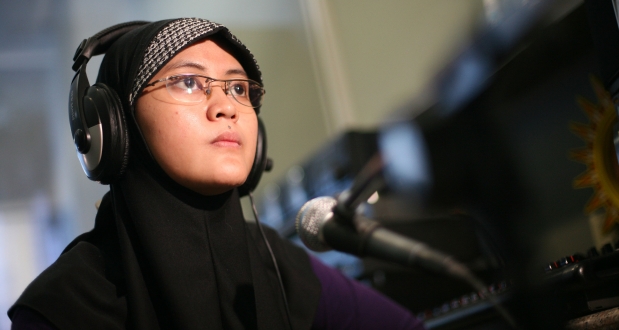- About
- Topics
- Story
- In-Depth
- Picks
- Opinion
- News
- Donate
- Signup for our newsletterOur Editors' Best Picks.Send
Read, Debate: Engage.
| January 21, 2016 | |
|---|---|
| topic: | Women's rights |
| tags: | #China, #gender diversity, #gender equality |
| located: | China |
| by: | Nicole Webb |
Fast forward to the early eighties, when China’s economy was opened to the West under President Deng Xiaopeng; while the nation blossomed, women lagged behind, again facing increasing discrimination.
In the last twenty years China has fought back to regain ground for women.
Just two decades ago, physical abuse was not considered acceptable as grounds for divorce.Today it’s a different story. After a decade-long push by women’s rights activists, China’s top legislature has adopted the nation’s first ever bill against domestic violence - the move hailed as a landmark decision.
How China’s Gender Inequality Compares Globally
According to a gender diversity study by Community Business - women working in China today share an equal footing with men. The world’s second largest economy outperformed 32 multinational firms across Asia. In 2011, China ranked 35th out of 142 countries in the United Nations Development Programme's Gender Inequality Index. 54.8 per cent of women (aged 25 and older) had completed secondary education or more, while for men it was 70.4 per cent; women's labor forceparticipation rate was 67.4 per cent compared to 79.7 per cent for men; and women representatives constituted 21.3 per cent of seats in national parliament.
Two years later in 2013, international media looked to China as a model for gender equality in the workplace. “China Dominates List of Female Billionaires” and “Women in China: the Sky’s the Limit” just some of the glowing media headlines.
In September 2015, to mark the 20th anniversary of the UN’s Fourth World Conference on Women, world leaders co-chaired by China’s President Xi Jinping, gathered in Beijing. Their mission, to achieve equality for women by 2030.
At the same time, China issued a white paperproviding a comprehensive overview of the country's policies for women and the unremitting efforts made towards evening up the playing field.
The white paper put the number of female entrepreneurs at one quarter of the total number of entrepreneurs in China, and claims about 55 percent of new Internet businesses are founded by women.
It also said, the average life expectancy for women had grown to 77.4 years in 2010, an increase of 4.1 years from 2000. Females now outnumber males in the graduate and post-graduate education by about four per cent.
World Reacts to President Xi
In the same breath he attracted staunch criticism for his crack down on women’s rights activists. On March 8, 2015 - International Women’s Day, China’s police detained five women for planning an action to raise awareness about sexual harassment on public transport.
President Xi acknowledged, that while China was committed to women's development and gender equality, the reality on the ground could be quite different.
Cultural Boundaries Shifting
Deep rooted cultural values remain in China, having a marked impact on women’s progress. Society has continued to stigmatise women who aren’t married by the age of 27, labelling them ‘Sheng Nu’ or in English, ‘left over’ women. Despite university degrees and thriving careers, for many women the pressure to marry and have children above all else, prevails.
Fortunately, despite marriage markets still existing for desperate parents to pair off their unmarried daughters - the attitudes of young women are shifting. As one local teacher claims, having just turned 29, “While my mother believes I should be married by now, I am definitely not ready until I’m at least 35. Leftover or not!”
In a CNBC report, 29-year-old senior marketing executive Elyon Song said, "I feel that in China, people now accept the notion that women can 'hold up half of the sky' since we have university degrees and are economically-independent, but when I go home, I still get asked by my parents and relatives, when I'm going to stop working and find a boy to settle down.” “Luckily they are not my bosses!”
To create favourable conditions for women's employment and career development, China has also moved to equalise the retirement age. Until now, women have been legally required to retire between the age of 50 and 55.
If China want’s its 1.5 million women to continue ‘holding up half the sky’… a level playing field where society and cultural values meet in the middle is crucial.
By copying the embed code below, you agree to adhere to our republishing guidelines.
